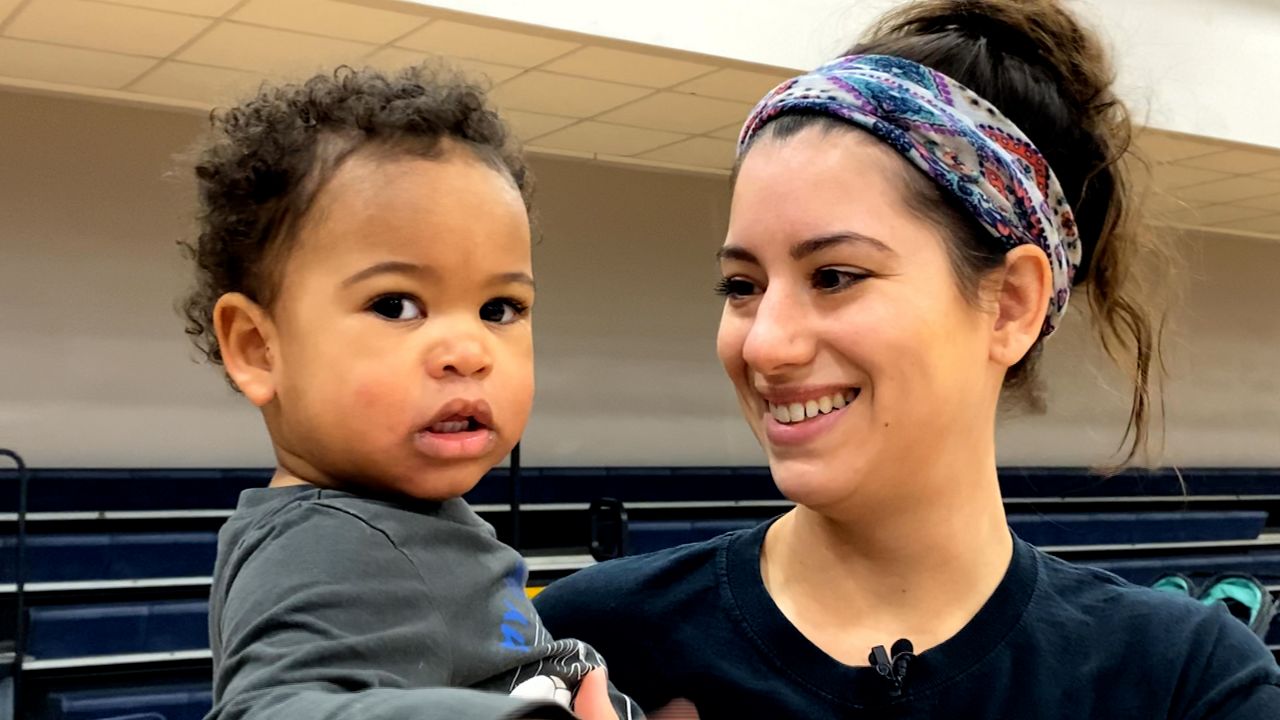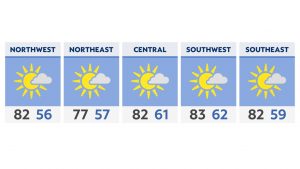CLEVELAND — Sam Cain used to avoid the doctor.
“I think a lot of men are like that. You know, I don’t want to go to the doctor. It’ll heal or it’ll pass,” he said.
But now, he’s thankful for his medical team at University Hospitals.
“The people at Ahuja are so amazing,” said Cain.
Last October, Cain recalled feeling sluggish and tired all the time. He also noticed blood in his stool.
None of these symptoms alarmed him.
“I was very ignorant toward it,” he said. “I just ignored the signs.”
But his wife didn’t. She repeatedly encouraged him to go get checked out.
“She’s like ‘no, take your butt to the doctor right now,'” he said. “She was pretty upset with me. So, I left work and went to the emergency room and found out I was like two bags of blood low in my system, and that’s why I was so drained.”
Sam Cain is now cancer free after being diagnosed with colorectal cancer in 2021. March is Colorectal Cancer Awareness Month and Sam wants to share his story of survival. He also wants to let others know about the importance of routine colonoscopies. @SpectrumNews1OH @UHhospitals pic.twitter.com/f8J3oKhnYs
— Micaela Marshall (@MMarshallTV) March 16, 2022
After blood infusions and further testing, doctors diagnosed Cain with colorectal cancer.
“I had three polyps. Two of them were stage 1, and one was stage 2. So, I was pretty heartbroken about that being that I am only 56, and I thought I had still a full life to live,” said Cain.
Things happened quickly from there. He went from getting diagnosed to undergoing surgery to remove his colon and becoming cancer free within about six months.
“I’m just blessed that I’m cancer free,” said Cain. “I have no more problems. I just have to stay healthy. I have to have a colonoscopy every three months now.”
He found out he had cancer at his first-ever colonoscopy.
Now, he considers himself a colonoscopy spokesperson.
Doctors recommend, as a general rule, everyone should get one starting at age 45, and if everything looks normal, come back every 10 years. Initially, experts encouraged 50-year-olds to screen.
“It’s so simple. You don’t feel anything. It’s no problem going to the doctor. You might be there an hour, hour-and-a-half, and it’s over with. But an hour, hour-and-a-half of your life is nothing compared to a whole lifetime of feeling healthy,” he said. “I stress that to all my friends now, anybody I talk to at work.”
African Americans are 20% more likely to develop colon cancer and 40% more likely to die from it.
About 1 in 4 colorectal cancer patients have a family history of this kind of cancer.
“My dad passed at 42 from cancer,” said Cain. “A lot of people in my family have passed from cancer, and me, I didn’t really take the warning signs or family history serious.”
Cain credits his wife’s persistence to his health today.
“If it wasn’t for her, I guess stressing and kind of cussing me out to get me motivated, I probably wouldn’t be sitting here now,” he said.
In recent years, the prevalence of colon cancer in younger people has increased. The incidence rate is rising by about 2% annually in people younger than 50, according to the American Cancer Society.
Dr. Meagan Costedio, a colorectal surgeon at University Hospitals, said there are several symptoms people of all ages should pay attention to.
“Change in bowel habits, new onset diarrhea or constipation, abdominal pain, GI bleeding — so whether you see blood on or in your stools or just blood on the toilet paper or in the bowl — as well as tiredness, unexplained weight loss, fatigue. Those are all signs that there could be something going on,” explained Costedio.
For many people, barriers like cost and negative perceptions of colonoscopies keep them from getting screened. Most health insurance covers the routine screening, but without insurance, it could cost $2,500 or more.
“My job is cancer surgery for the most part, and so I’m meeting these people after they’ve been diagnosed with cancer and 100% of them say to me ‘I wish I had known how easy the colonoscopy was because I would have gotten it done’,” said Costedio.
Besides colonoscopies, there are several at-home screening tests that are gaining popularity. They can be less expensive, but also less accurate.
“There are some insurance companies that if you choose to go with the at-home testing, that may not pay for the colonoscopy if it’s negative. So, we have to be careful. The colonoscopy right now is our gold standard test. Those at-home tests are less effective at finding big polyps and of course if it does find a big polyp, it can’t take it out like the colonoscopy,” said Costedio.
Early detection is huge in preventing colon cancer, which is why Costedio encourages everyone to do routine screening.




